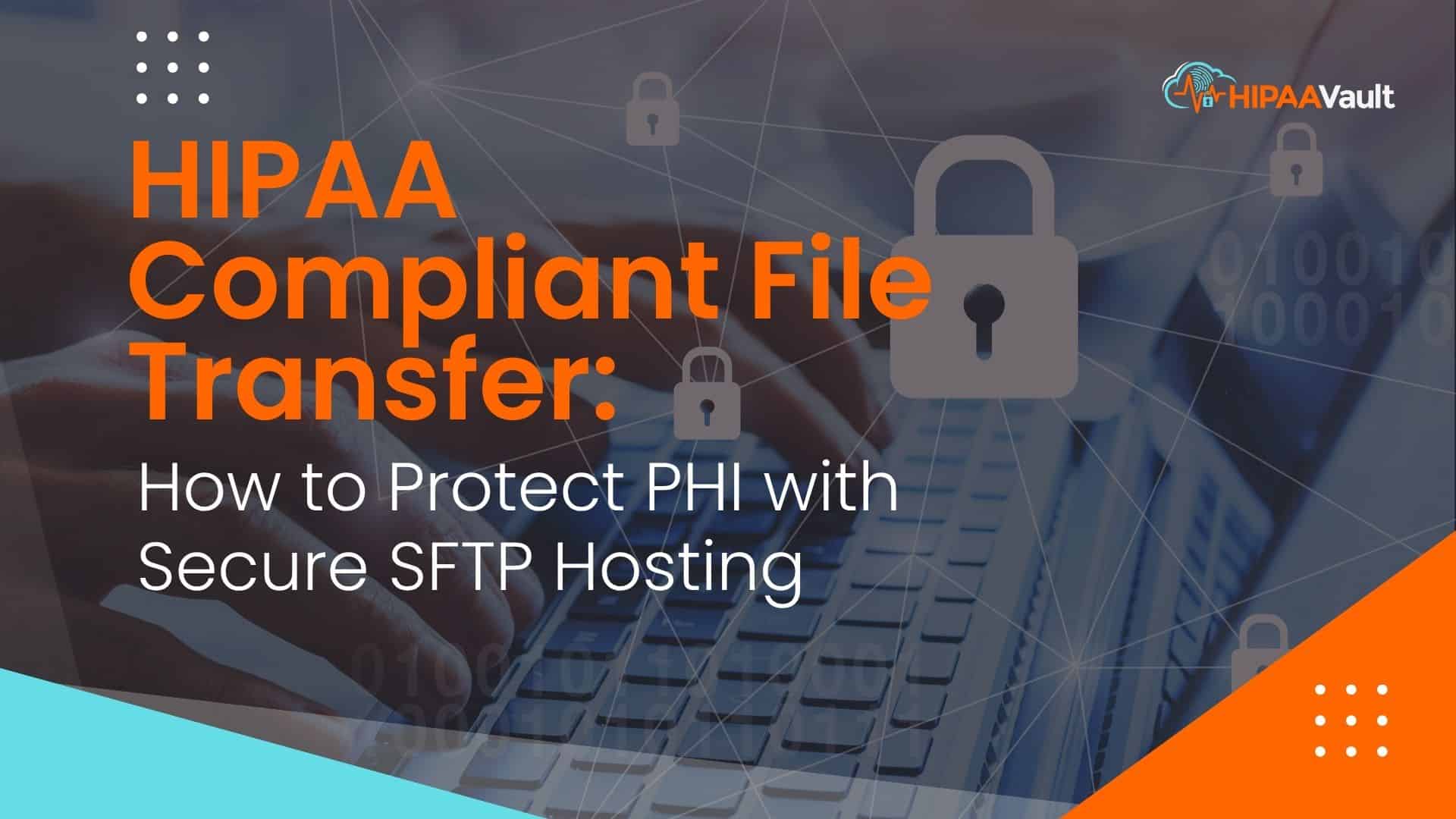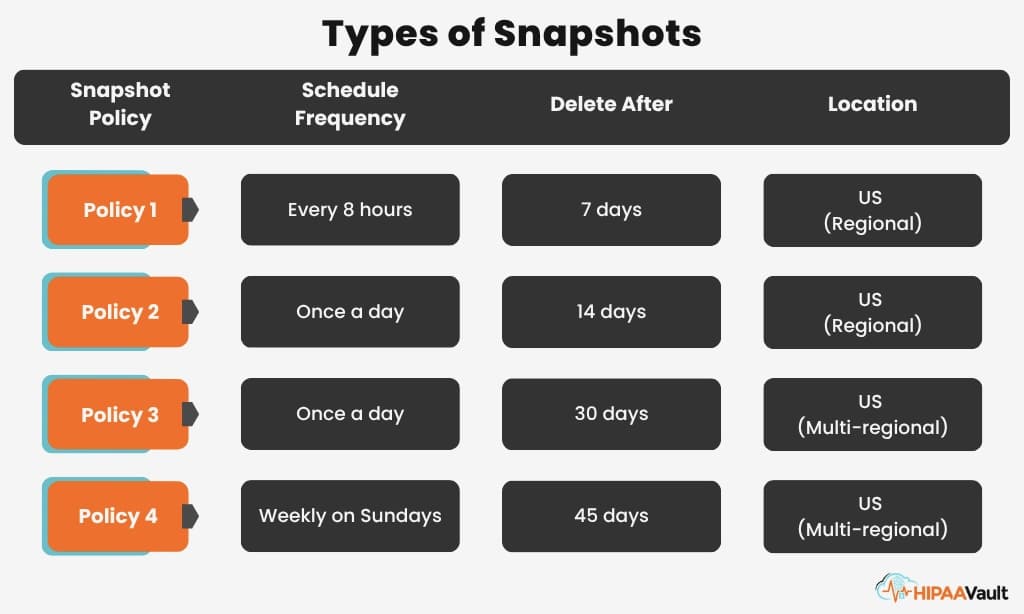When it comes to patient data, even a single unsecured transfer can lead to fines, breaches, and reputational damage. Healthcare organizations, billing firms, and SaaS vendors working with PHI must ensure every file shared or stored meets HIPAA’s Security Rule standards.
If your team is still relying on email, FTP, or cloud storage without full encryption and audit logs, it’s time to consider a HIPAA compliant file transfer solution — specifically one built on SFTP (Secure File Transfer Protocol).
HIPAAVault now offers a Free Trial of its Managed SFTP Hosting, letting you move PHI securely with full encryption, access logging, and a signed BAA — no DevOps required.
Start Your 30-Day Free Trial →
Why File Transfer Security Matters Under HIPAA
The HIPAA Security Rule mandates that all electronic protected health information (ePHI) be safeguarded through administrative, physical, and technical controls. This includes any data in transit — whether you’re sending files between clinics, billing offices, or to cloud systems.
Unsecured methods like standard FTP or email attachments are not compliant. They lack encryption, user authentication, and traceability — all of which are required under HIPAA. Violations can lead to penalties from the Office for Civil Rights (OCR) and erode patient trust.
To meet compliance, organizations must ensure:
- Encryption in transit and at rest (per NIST SP 800-52 Rev.2)
- Access controls to limit who can send or receive PHI
- Audit logging for every transfer
- Integrity checks to detect tampering
- A signed Business Associate Agreement (BAA) from the vendor
Why SFTP Is the Most Reliable Method for HIPAA-Compliant File Transfers
SFTP (Secure File Transfer Protocol) is built on SSH (Secure Shell), encrypting both files and credentials during transmission. Unlike FTP, which sends data in plain text, SFTP provides a fully encrypted communication channel — meeting HIPAA’s technical safeguard requirements.
Benefits of SFTP for Healthcare and SaaS Teams
- End-to-end encryption of data and authentication credentials
- Granular user and role-based access controls
- Detailed audit logs for compliance reporting
- Strong protection for remote and cloud-based workflows
Many organizations use SFTP to transmit PHI between EHR systems, billing providers, and research databases safely — while maintaining the logs and documentation needed for HIPAA audits.
Choosing a HIPAA-Compliant File Transfer Service
When evaluating SFTP solutions, look for:
- Dedicated servers (not shared)
- Automatic encryption of stored data
- User management and logging features
- Signed BAA included in the service
- Predictable pricing — not per-user or per-GB fees
HIPAAVault’s Managed SFTP Hosting meets all these criteria and more.
- Go live in under 24 hours
- Flat monthly rate — no AWS-style billing spikes
- Fully managed setup — no DevOps required
- Audit-ready with BAA and logs included
See HIPAA compliance in action. Start a Free 30-Day Trial of HIPAAVault’s secure SFTP hosting and experience effortless data protection.
How to Migrate to a HIPAA-Compliant File Transfer Platform
Migrating to an SFTP-based system can be straightforward with the right plan:
- Assess your current transfers — identify where PHI is sent unencrypted.
- Select a compliant provider — verify encryption, audit logging, and BAA.
- Set up users and permissions — enforce least-privilege access.
- Train staff — on secure file sharing and incident reporting.
- Monitor logs — to verify compliance and identify anomalies.
Want to see how simple a compliant SFTP setup can be?
Try HIPAAVault’s Free SFTP Trial and discover how fast, encrypted file sharing keeps your organization HIPAA-compliant — without added complexity.
Audit-Ready sFTP in 24 Hours—No AWS Billing Spikes
Flat-rate, dedicated secure file transfer. Eliminate per-user fees and complex DevOps. Includes BAA and full audit logs.
Learn MoreCommon Questions About HIPAA File Transfers
Is SFTP automatically HIPAA-compliant?
Not automatically — it must be properly configured and paired with a Business Associate Agreement (BAA) from your hosting provider.
Can I use Google Drive or Dropbox for PHI?
Only if you have a signed BAA and configure the service correctly. See HHS Cloud Computing & HIPAA guidance for details.
What encryption should I look for?
Use SFTP/SSH or TLS 1.2+ encryption aligned with NIST SP 800-52 Rev.2 standards.
How fast can I deploy a compliant file transfer solution?
With HIPAAVault, you can be audit-ready in 24 hours — with your own dedicated SFTP server and signed BAA.
Final Thoughts
Protecting PHI during file transfers isn’t just a compliance checkbox — it’s a cornerstone of patient trust and data integrity. SFTP-based HIPAA-compliant file transfer systems deliver the encryption, access control, and audit capabilities required to meet today’s regulatory and operational demands.
If you’re looking to upgrade your workflow or replace insecure legacy tools, HIPAAVault’s Managed SFTP Hosting offers an easy way to become audit-ready without DevOps overhead.
Start Your 30-Day Free Trial
Fully Managed. Flat-Rate. HIPAA-Compliant.
Launch Secure File Transfers Today →








